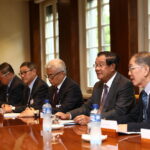Government
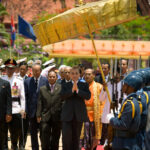
Cambodia is set up as a multi-party democracy under a constitutional monarchy. The King serves as the head of state and the Prime Minister is the head of the Royal Government of Cambodia. Norodom Sihamoni,1 the King, was crowned in 2004 after the abdication of ...
Protected areas
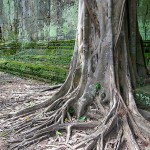
As Cambodia emerged from years of conflict, pressures grew on natural resources and sensitive areas. In response, a number of protected areas were created by royal decree in 1993 to protect ecologically and culturally important places. More detailed guidelines on managing the country’s protected areas ...
Securities exchange policy and regulation
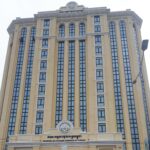
For most of the 21st century, Cambodia has enjoyed significant economic expansion, moving from a period of political turmoil to emerge as one of the fastest-growing economies in the world. Cambodia achieved lower-middle-income status in 2015, largely as a result of free-market reforms, the introduction ...
ODC Resources at Work & Honorable Mentions
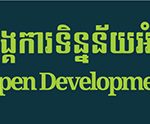
By making information accessible to anyone with an internet connection, ODC facilitates rational, fact‑based dialogue, improved communication, strengthened policy making, and better development planning across all sectors. The ODC website has been featured on Le Petit Journal, an online French newspaper, as a case of ...
International relations
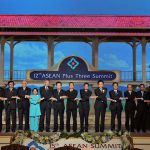
Cambodia has strong diplomatic links with many countries. Its warmest relationship with a superpower is with the People's Republic of China. The most important economic ties are with China, the United States of America, Thailand and Vietnam. Cambodia is a member of the UN, ASEAN, ...
Water policy and administration
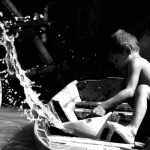
In Cambodia, alternate periods of drought and heavy rains bring challenges for water management. The current trends show increasing annual rainfall and temperature throughout Cambodia, with a likelihood that both flooding and droughts will increase in frequency, severity and duration49. Water management involves issues of ...
Civil and commercial litigation
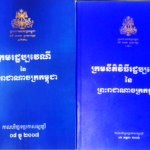
Since 1993, the Royal Government of Cambodia (RGC) has been working to reform the country’s legal framework, and in particular the application of justice, to provide a clear and fixed procedural system to ensure respect for individual rights and equality before the courts.78 In theory, ...
Judiciary and courts
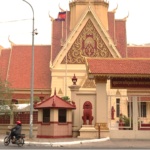
The judiciary is one of the three powers, together with the executive (the Government) and legislative (the National Assembly and the Senate), that constitute the state. 114 Its role is to monitor the application of the law and punish its violation. This power is vested ...
Constitution and rights
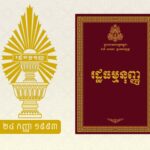
The Constitution of the Kingdom of Cambodia was officially promulgated by Royal Kram on 24 September 1993. Image designed by Open Development Cambodia (ODC), 10 September 2021. Licensed under CC BY-SA 4.0.The 1993 Constitution of the Kingdom of Cambodia is the supreme law of the ...
BarCamp Sihanoukville 2013 Recap
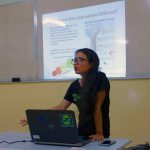
On December 7th and 8th, a small team from ODC jumped in a bus and traveled to Kampong Som to participate in BarCamp Sihanoukville. The conference was held at Build Bright University. The day-and-a-half-long event featured presentations from specialists of many fields and interests, including ...
Non-renewable energy production
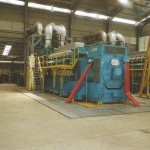
Non-renewable energy sources are chiefly fossil fuels such as coal, diesel, oil and gas. They provide most of Cambodia’s locally-produced electrical supply – in 2011 diesel and heavy fuel oil generators provided 89% of local electricity generation. ...
Overview of policy and legal framework
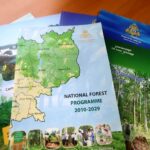
Environmental protection and conservation are given high priority in the Royal Government of Cambodia’s guiding strategy, the Rectangular Strategy Phase III (2014–2018). ...
Criminal litigation
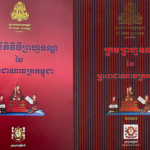
Criminal litigation refers to the judicial procedure held before a criminal court to resolve accusations brought against a person accused of a criminal offense. As defined in the law, “The purpose of a criminal action is to examine the existence of an offense, to prove ...
Foreign investors
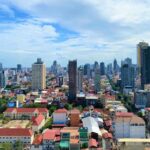
Things you should know about Cambodia before investingCambodia has performed well on foreign direct investment (FDI) so far, three times better than predicted, which scored 3.6, becoming the top 25 in the world.288 The FDI reached an all-time high of 14.1% in 2012 and nearly ...
Development and assistance for land tenure and land titling
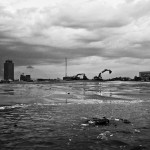
Beginning in 2002, the World Bank, Germany, Finland and Canada began a joint-program to promote land tenure security in Cambodia by providing financial and technical support to land titling efforts. Following the eviction of residents of the Boeung Kak Lake area of Phnom Penh due ...
Environmental impact assessments and the Sihanoukville building collapse
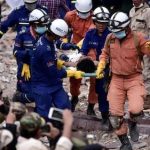
Early in the morning of June 22, disaster struck Sihanoukville as a seven-story condominium building under construction collapsed. According to survivors, around 60 construction workers were on-site, some with their families sleeping.318 The collapse has killed 28 people and injured 25, and led to the ...
Civil society

The launch event of a project improving the delivery of public services through ICT in Svay Rieng province, Cambodia. Photo by the ODC team, taken on 28 June 2017. Licensed under a CC BY-SA 4.0.Civil society, representing the interests of ordinary citizens, is the part of ...
Cassava
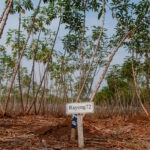
Cassava is a significant contributor to the agricultural sector in Cambodia. The planting, harvesting, processing and export of cassava provides jobs and livelihoods for thousands of Cambodians. Cassava is a significant cash crop for Cambodian farmers.438 Cassava production in Cambodia has increased substantially since 2006. ...
Investment
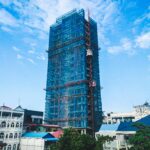
Cambodia restructured its economy after many years of protracted war and instability. The economy grew strongly following the country’s transition to a free-market economy as it opened to trade and capital flows. Growth was supported by the flow of development assistance, access to the European ...


